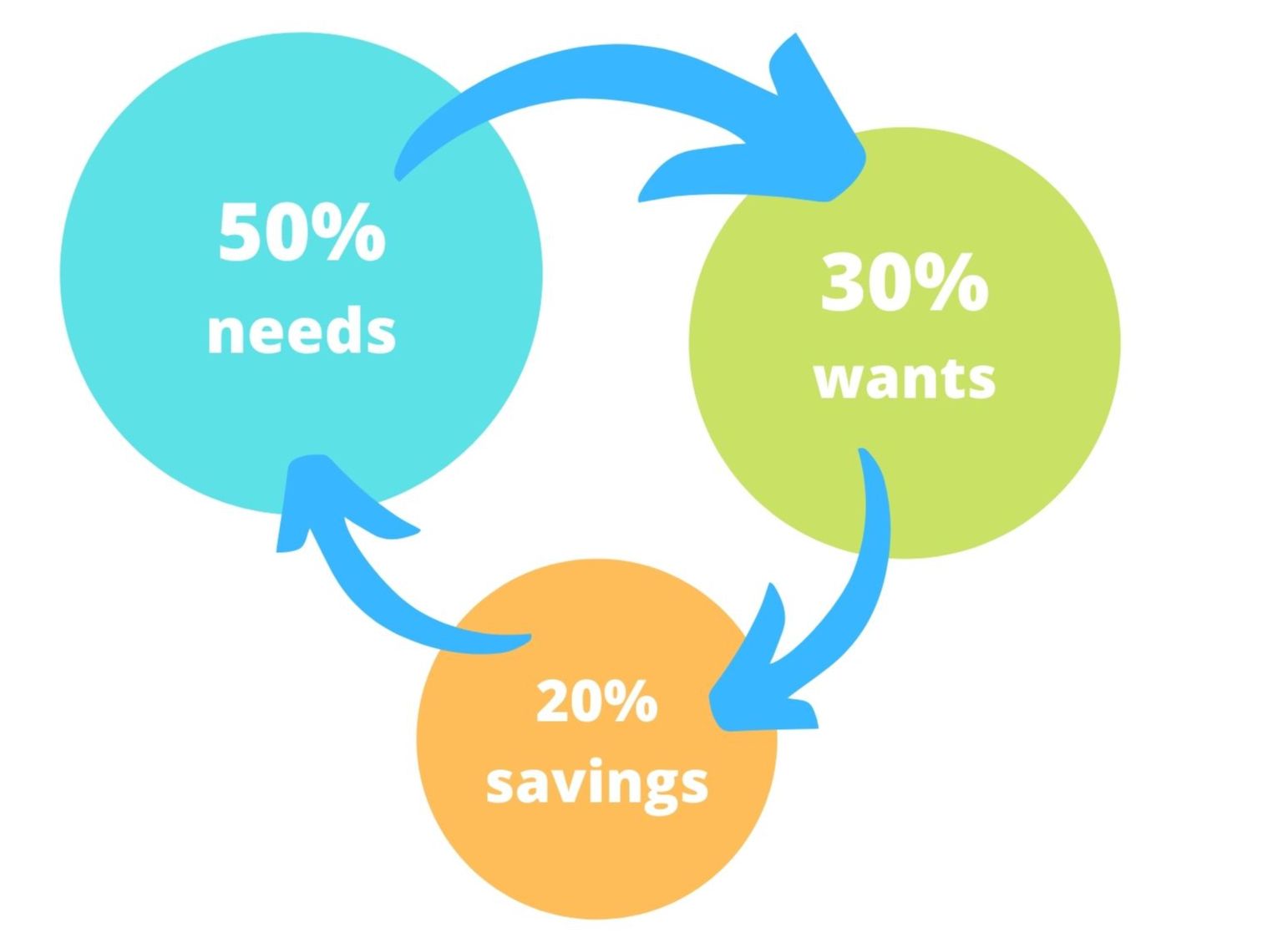Let’s Talk Money
It is a great habit to become mindful of your money as you begin your years of earning money for your time and skills. This article's focus is centered on exactly what to do with that money. Spending and reserving money during your young professional years is a useful and productive skill.
There is an idea, popularized by Massachusetts Senator Elizabeth Warren, that attributes a 50/30/20 rule to budgeting. It says that 50% of your monthly income should go towards needs, 20% to savings and the remaining 30% for others, which is basically anything you want. It’s a popular idea, because it is a great model guide the framework has adapted on where to spend and what to save.

50% to Needs
Half of your paycheck should go to needs. That could be rent and utilities, groceries, insurance and may include, for some, student loans or debts. If you are spending more than 50% on these categories then try and downsize in those essential needs areas. I started buying my groceries at the local outside market instead of a regular supermarket in order to get my produce for half the cost. Small changes like switching locations on where to shop can help you get within your budget. There are many other ways to make it within the close borders of 50%, like downsizing your home and stuff. You know which changes work best for your lifestyle, but do those adjustments and make it to 50%. Remember, as you grow in your career your 50% will increase and you will always be able to reach higher standards of needs.
30% to Wants
We all have interests and incorporating them into our lives can help make us productive. These include hobbies, vacations, dining out, entertainment and the likes. Your wants are just as important as your needs. You're acknowledging that when you follow the 50/30/20 rule because you are giving them a monetary place. The 30% is where you can use funds towards gaining new skills or courses that benefit your career or hobbies that enhance your motor, analytic or creative skills. My 30% goes towards a gym membership, dining-in with friends, streaming services, like Netflix and spotify and online courses. Again, stay within the 30% budget and if you aren't, then adjust. That could mean limiting your happy hours, purchases and entertainment - hey, at least you can always find a person with another person’s Netflix account you can use.
20% to Savings and Investments
20% of your paycheck should absolutely go into savings and investments. If you haven’t saved yet, start this month and set aside 20% towards savings. Start with savings first and as that money incrementally grows you can turn towards investments. This is a great habit and acknowledgement that you are preparing for your future. There are many places to save and invest your money in. Do your research and decide the places you trust and can understand well. That could be a bank lead saving account, IRA contributions to mutual funds, stocks, and cryptocurrency to name a few. Each has their risks and benefits. The framework suggests focusing mostly on low risk at the beginning of your journey and as you grow in your research to explore more riskier or newer avenues. Wholly, understanding the methods of investing or trusting an expert to manage them are not taken lightly by the framework. We aim to simplify the information for you in the continuation of this framework and of course will be discussed.
Getting used to setting aside money is a great skill to have. And when your needs and wants conditionally extend the ‘50% and 30%’, you have extra money to use towards them, like when you’re buying your first house. By saving 20%, you give yourself space to feel good about supporting your bigger purchases.
You choose your 50/30/20
You decide your needs, wants and your choice on how and where to save your money, so for each individual, although sticking to 50/30/20, budgeting is very personal. That is why you must be honest with yourself throughout the entire process. In the beginning it might be hard to plan ahead but the more you make these habits part of your life the easier it will be to manage your money.

